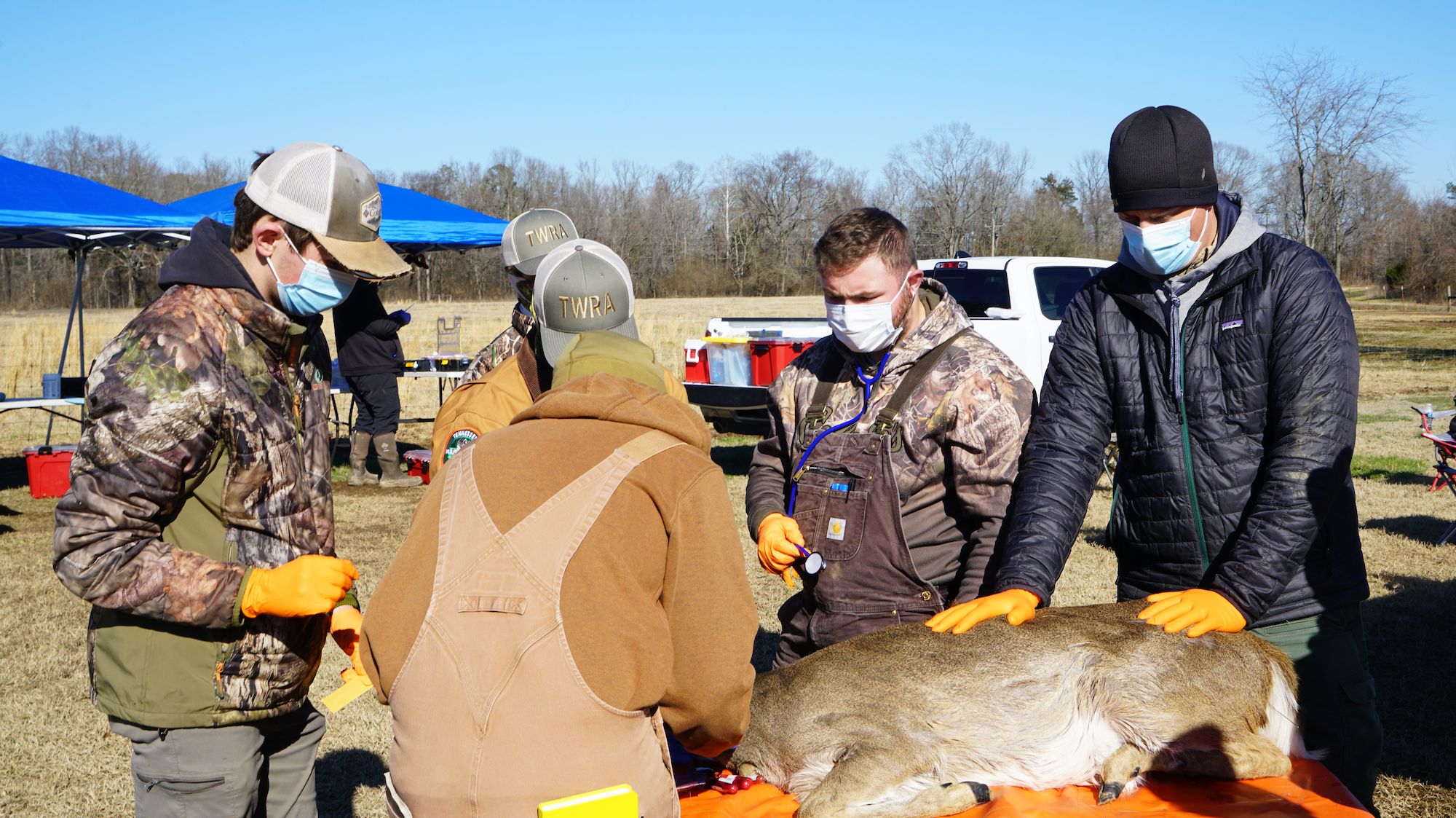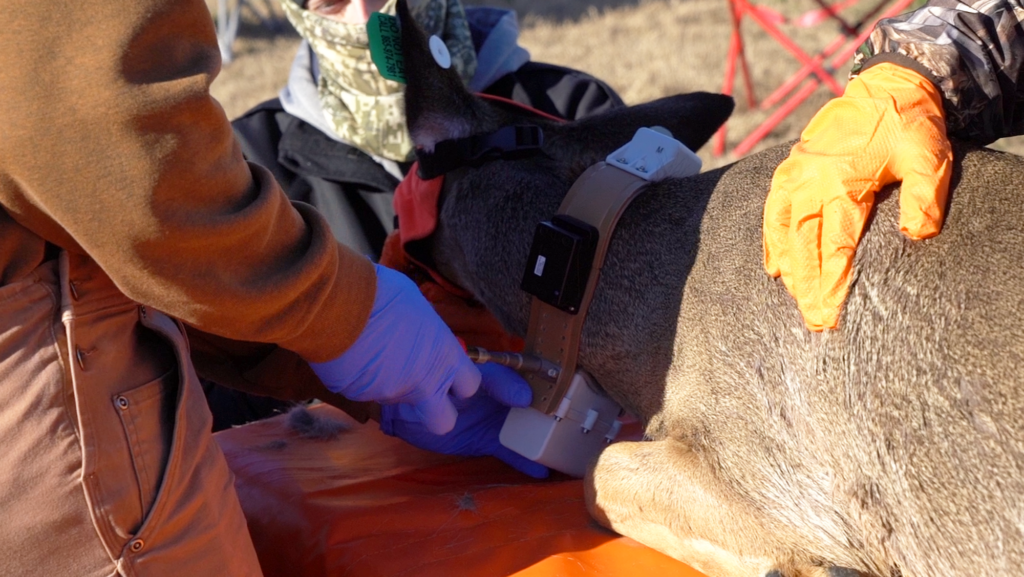
SARS-CoV-2, Chronic Wasting Disease Confirmed in Local Wildlife
GRAND JUNCTION, Tenn. – White-tailed deer are one of Tennessee’s most populous native species, commonly sighted in forests, fields and even residential and commercial areas. The University of Tennessee Institute of Agriculture’s (UTIA’s) School of Natural Resources, in partnership with the Tennessee Wildlife Resources Agency (TWRA), is now in its second year of an ongoing study on disease transmission among local deer, with SARS-CoV-2, the pathogen that causes COVID-19, and chronic wasting disease of primary concern.
After using helicopters to safely capture deer at the Ames AgResearch and Education Center, researchers conducted SARS-CoV-2 tests and collected DNA samples. To determine movement patterns and potential paths diseases could travel, teams also installed tracking collars that provide updates of an animal’s location every 30 minutes. While bucks had their collars installed in the field and were immediately returned to the wild, does were airlifted to camp.
“We conduct pregnancy tests on does, installing both GPS collars and internal implant transmitters if they are confirmed to be expecting,” says Lisa Muller, one of the project’s leads and professor in the School of Natural Resources. “The implant transmits a signal when the animal gives birth, allowing us to locate and put collars on their young. The data we collect will help us understand how diseases impact our next generations of wildlife.”

SARS-CoV-2 is a highly transmittable virus that has only recently been identified in white-tailed deer, now confirmed to have spread throughout the Mid-South. Although the virus currently causes few symptoms in animals, researchers are concerned deer might act as a reservoir.
“A reservoir is a population of animals that has a disease cycling within them that may or may not be harmful to the host,” says Dan Grove, UT Extension assistant professor in the School of Natural Resources and wildlife veterinarian with TWRA. “SARS-CoV-2 might be mutating and evolving which could then jump back to humans. We could potentially experience a totally new variant that is either better or worse than the original.”
“By combining the work we are doing here in Tennessee with similar studies happening across the country, we can robustly identify the ability of SARS-CoV-2 to persist in white-tailed deer and mitigate the risk of spillback into the human population,” says Mark Wilber, assistant professor in the School of Natural Resources.
Unlike SARS-CoV-2, chronic wasting disease has drastically reduced deer populations in many areas of Tennessee. Classified as a prion, or an abnormal protein that causes malfunctions in an organism’s cells, the disease has a 100% mortality rate and kills an infected animal within 12 to 18 months. Identified in over 30 states, chronic wasting disease can remain on surfaces for years, potentially causing multiple outbreaks over long periods of time.
“Deer serve an important role both economically and ecologically,” says Justin Kosiewska, graduate research assistant in the School of Natural Resources. “Understanding the impact of disease is vital to the conservation of deer populations and everything that relies on them.”
Using the collected data, researchers will develop management strategies for chronic wasting disease and improve our understanding of whether SARS-CoV-2 poses a health risk to local communities. The project is made possible thanks to collaboration with partners including TWRA, USDA and the Animal and Plant Health Inspection Service.
The University of Tennessee Institute of Agriculture is comprised of the Herbert College of Agriculture, UT College of Veterinary Medicine, UT AgResearch and UT Extension. Through its land-grant mission of teaching, research and outreach, the Institute touches lives and provides Real. Life. Solutions. to Tennesseans and beyond. utia.tennessee.edu.